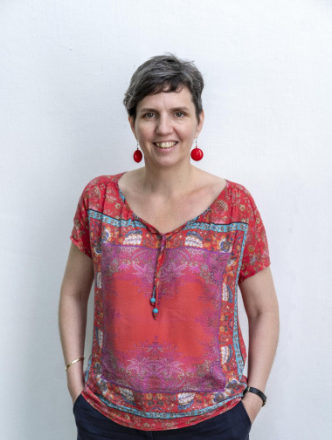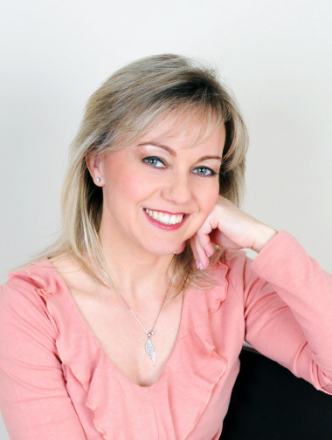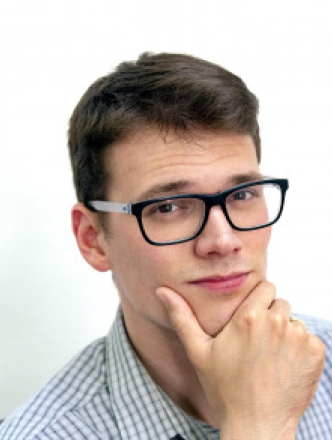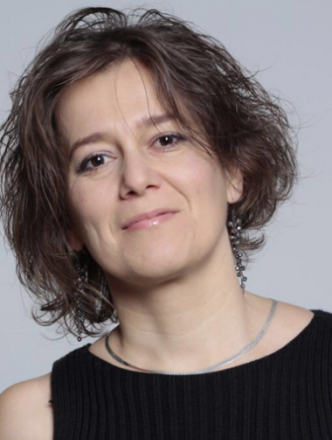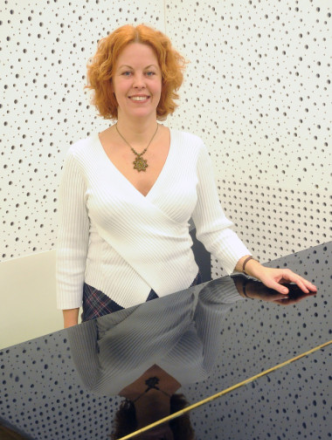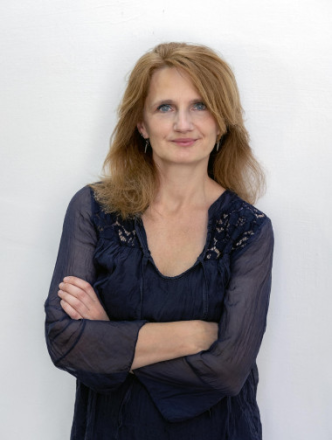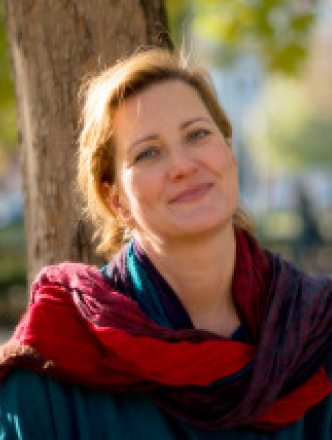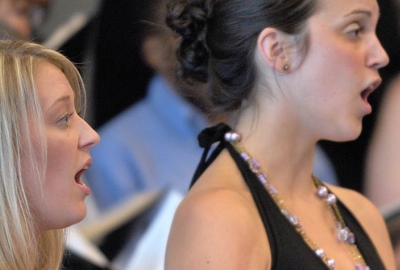
SUMMER 2024
Steinhardt's Department of Music and Performing Arts Professions is taking the summer off! Our acclaimed Summer Programs and Workshops will not be offered in 2024 as we plan for more compelling and varied offerings in 2025 and beyond. Please sign up now to receive information about Summer 2025 as soon as it is available. Thank you.
SUMMER 2025NYU participants will be enfolded into the second week of the 32nd International Kodály Seminar organized annually by the Kodály Zoltán Music Pedagogy Institute, Kecskemét, Hungary, an arm of the Liszt Ferenc Academy of Music. This study trip will help each participant to place Kodály practice in its social context—among living Hungarians, master music teachers, and locations where the methodology was initiated and grew. Kecskemét, Hungary, is the birthplace of Zoltan, composer, performer, conductor, educator, and pioneer ethnomusicologist. NYU students will participate in morning musicianship and pedagogy courses, an early afternoon conducting course, then choose from 6 late afternoon workshops—all taught by distinguished Hungarian faculty. The day will end with a rehearsal of the chorus which will perform at a closing concert.
Program Dates
July 24 - July 28, 2023
Application Deadline
April 11, 2023
Costs and Fees
$1300
This Fee Covers:
- 1-week tuition
- NYU Required Travel Insurance
- Ground Transportation
- Hotel Accommodations
- Opening and Closing Receptions
Intended For
Post-College and Graduate Students
Undergraduate Seniors in Music Education with Permission of Their Advisers
Continuing Professionals
For whom is this program being created?
All musicians-educators, especially those with Kodály training, school
administrators, and arts supervisors are encouraged to participate in this program.
Spouses and partners of participants are welcome to attend to observe or to attend
touring events and concerts. These spouses and partners must make their own travel
and hotel reservations.
Who will lead the trip and teach the course work?
Anna (Panni) Kovács, long-time faculty member of the Kodály Summer
Institute at New York University and native Hungarian who grew up being musically
educated using Kodály pedagogy, will lead the NYU Kodály Summer Institute 2023 in
Hungary. Hungarian faculty will be those teachers for the summer arranged by Dr.
László Nemes, Director of the Kodály Zoltán Music Pedagogy Institute of the Liszt Ferenc Academy of Music, Kecskemét, Hungary. Dr. Jerry Kerlin, founder of the Kodály
Summer Institute, will serve as coordinator at New York University.
Daily Schedule Sample:
9:00–9:30 a.m. Choral Warm-Up
9:45–11:45 a.m. Kodály Musicianship (Solfege)
11:45 a.m.–2:00 p.m. lunch break
2:00–3:00 p.m. Conducting
3:00–4:30 p.m. choice of 1 workshop from 6 (see below)
6:00–7:00 p.m. Choir
AFTERNOON WORKSHOPS (choose 1)
Borbála Szirányi
“To make musical reading and writing general knowledge, through the school."
(Kodály: A Hundred-Year Plan 1947)
Through the methodological works of Jenő Ádám and László Dobszay, the course aims
to illustrate the considerations that should be made for successful teaching of musical
literacy. How does the type of notation and musical material chosen affect writing and
reading? In what ways and through what musical material is it recommended to develop
musical hearing, which is the basis for successful musical reading and writing? Which
Kodály reading exercises are recommended for music teaching in primary schools and
how can they be integrated into music work?
Dr. Nóra Keresztes
Characteristic Modal Harmonic Turns—A Practical Approach
During the workshop: 1) we work with the church modes, 2) map the modal tone and
chord set using the pieces of the great masters of Renaissance vocal polyphony:
Palestrina, Lassus, Victoria, Byrd, Hassler, and 3) finally we will dive into the mysteries
of certain formulas of 16th-century vocal polyphony crystallized into some characteristic
harmonic turns. The workshop is recommended for advanced level applicants with at
least a basic knowledge of harmony. Each student should define voice type (S, A, T, or
B) when signing up.
Anikó Novák and Katalin Körtvési ZeneZen, Creative Piano Pedagogy from a Child's Perspective: Recommended for piano teachers and students of piano pedagogy. The ZeneZen pedagogical approach inspires a love for music and piano in the hearts of young children by the combination of solfège according to the Kodály Concept with free movement improvisation according to the principles of Kokas Pedagogy. This combination provides a holistic basis for musical learning and understanding. Participants will experience the learning process from a child’s perspective. By connecting nature and dancing with piano, ZeneZen allows the participant to internalize music in a primal way while also keeping the intellectual component alive.
Katalin Körtvési
Introduction to Kokas Pedagogy: Recommended for anyone working with children and adults. For years, Hungarians have known about a unique educational method—music is a great tool for the learning-teaching process, where everyone can step closer within herself/himself using full attention, self-expression, openness, acceptance, silence, and, last but not least, creativity.
The Kokas pedagogy was developed by one of Hungary’s most inspiring music
pedagogues, the late Klára Kokas, who proved that the Kodály concept of music
education is not a closed educational system, but one that can be complemented by
various creative pedagogical approaches. This experience based pedagogy has its
roots in the Kodály philosophy. An encounter with the most beautiful songs and lyrics of
folk music joined with active and deeply-felt examples of Western art masterpieces is
the most authentic manifestation of Kodály’s idea that “music belongs to everyone”.
The principles of her music pedagogy lie in her realization that the best way to guide
children toward concentrated attention and a thorough perception of Western art music
is through movement, activity, and creative work. Her pedagogy uses an age-appropriate, holistic approach with both children and adults to help them perceive music
in its totality.
The aim of this course is to better understand the pedagogy of Klára Kokas, and,
at the same time, to integrate music pedagogy skills and creativity.
Dr. Anna Fűri
Choral Literature: Hungarian Compositions for Children’s Choirs in English and
Latin Languages. Participants will analyze and perform a wide selection of choral repertory for treble choirs. Issues related to choral techniques and to the teaching of the selected pieces will also be discussed in detail.
Dr Máté Balogh
Schenkerian Analysis In Practice: Schenkers analysis is a syntax system known worldwide, which is mainly applied among the various analytical-theoretical approaches to functional tonal music. However, its practical effect is very often overlooked. Máté Balogh’s singing-based course draws attention to the interpretative usefulness of the Schenkerian analysis. We recommend the course to all those who want to get to know the basics of Schenkerian theory and are willing to enjoy its benefits in performance practice.
Program Costs & Expense Details
Roundtrip airfare from New York to Budapest. You will be required to purchase
your own roundtrip airline ticket to and from Budapest (or your other point of
arrival and departure). As well as personal expenses and purchases.
Program Fee for the Kodály Summer Institute in
Hungary: $1,300 includes:
- Travel insurance within the NYU program dates.
- Ground transportation within Hungary (trains, taxis).
- Opening and closing receptions.
- Tuition at the Kodály Zoltán Music Pedagogy Institute of the Liszt Ferenc Academy of Music.
- Hotel in Kecskemét, Talizman Hotel, which includes breakfast.
- All meals other than the opening and closing receptions and breakfast included with the Kecskemét hotel.
Faculty
Contact Us
Program Administration
Summer Programs
212 998 5438
mpap.summer@nyu.edu
Academic Content
Dr. Jerry Kerlin
Kodály Summer Institute, Director
212 998 5774
jerry.kerlin@nyu.edu
